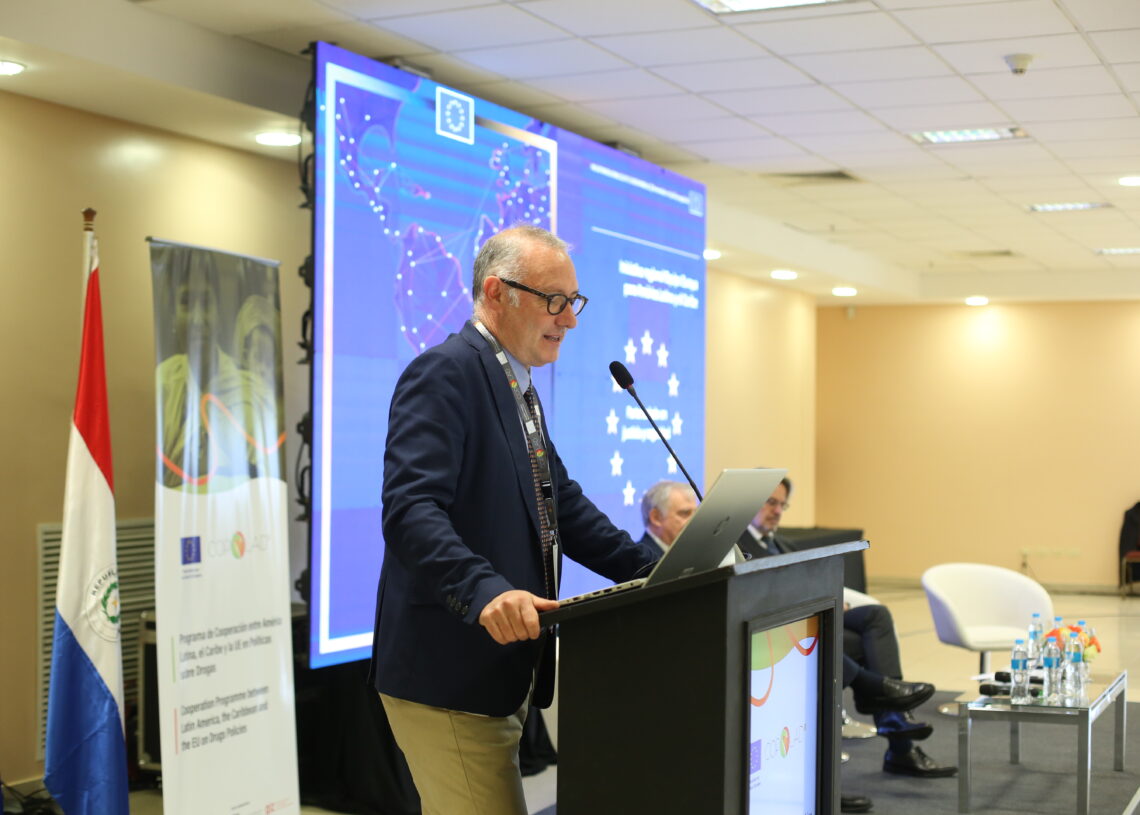Various complementary meetings on the illegal drug trade are being held in Paraguay this week aimed at strengthening bi-regional cooperation. These will be attended by agencies and policy makers from countries in Latin America, the Caribbean and the European Union, coinciding with Paraguay’s co-chairmanship of the Coordination and Cooperation Mechanism on Drugs between the European Union and CELAC. These are events held with the support of the National Anti-Drug Secretariat of Paraguay (SENAD) and with funding from the European Commission. They will be meetings that deal with the most operational and strategic aspects in an attempt to analyse the situation on the subject in both regions in the fullest and most comprehensive manner.
Friday, June 24 will see the holding of the High-Level Meeting of the CELAC-EU Mechanism for Coordination and Cooperation on Drug Matters, co-chaired during this six-monthly period by Paraguay and France. Senior officials, ministers, and representatives of the countries of both regions, CELAC and the EU will be participating in this event. The objective is to deepen the political dialogue on illicit substances in two prioritized dimensions: the challenges derived from the impact of the COVID-19 crisis and gender equality.
As is traditional, the meeting of the aforementioned Mechanism is preceded by the Annual Meeting of the COPOLAD III Programme, which will take place on June 22 and 23 in Asunción. The trajectory of this meeting, which has been held for over a decade, makes it a benchmark for all countries involved in international cooperation on drug policy. COPOLAD III is financed by the European Commission to the tune of €15 million and is set to run for a total duration of 4 years. Its aim is to provide a platform for technical dialogue and cooperation between the countries of Latin America, the Caribbean and the EU via the mobilization of international public expertise in relation with the National Drug Observatories and the policies to reduce the illegal market and consumption of drugs in the region.
At this morning’s press conference the Ambassador of the European Union, Javier García de Viedma, mentioned that “the challenge of illegal drug trafficking and the challenge presented by organised crime is global and as such it must be faced globally in line with the specific characteristics of each region. The European Union cannot work with Paraguay alone. It has to work with the entire region since there are three principal zones to be covered, namely those within which the drugs are produced, consumed and transported”.
The COPOLAD III Annual Meeting will open with a tribute to the Paraguayan Prosecutor Marcelo Pecci, who was recently murdered by organised crime. The challenges currently presented by the power and financial might of the illegal drug trade facing democratic governance and sustainable development will be addressed, as will the existing bi-regional cooperation mechanisms for meeting them. On the first day the importance of scientific research for improving both the understanding of the drug phenomenon and the effectiveness of public policies will be analysed. Likewise, the need to focus public policies and investments on territories and populations with greater vulnerability will be discussed, as they are affected by problems of illegal drug trafficking and consumption. The development of innovative public policy responses will be another of the focal points of debate and exchange between the participating countries.
For her part, the Minister of SENAD, Attorney-at-Law Zully Rolón, pointed out that “Paraguay needs to make the problem of organized crime visible in order to up the fight. We are working with everything we have; the fight must be a joint one, it must be global, and we are headed in the right direction.”
At this meeting, the European Union will present the progress made in relation to the new Team Europe regional initiative for Latin America and the Caribbean: Partnership in Justice and Security. In addition, fundamental pillars in future illegal drug agendas will be addressed at the meeting, such as environmental impact, media narratives on illicit drugs, social and labour insertion, or the control and scrutiny of precursor chemicals.
The week will commence with a technical seminar entitled “The spaces where illegal drugs are trafficked and the urgent need to coordinate investigations in prison and border areas”. This meeting is organized by the European EUROFRONT, EL PAcCTO and COPOLAD Programmes. During the two days of the meeting, prosecutors, border control agents and specialised organisations will discuss the flows and connections of the illegal drug trade between South America and Europe, police and prison cooperation, and criminal prosecution strategies against the illicit drugs market. In addition, work will be done within the framework of this event to draw up operational recommendations based on the analysis of good international and inter-institutional practices. More information:






